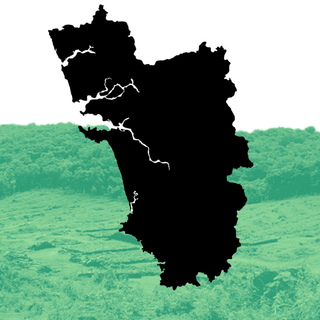The Earth’s oxygen-rich atmosphere will only last for about a billion years from now — making it uninhabitable for life forms that depend on oxygen for survival, a new study has found.
“We find that the Earth’s oxygenated atmosphere will not be a permanent feature,” Kazumi Ozaki from the department of environmental science at Toho University in Japan, who co-authored the study, told the media.
Published in Nature Geoscience, the study is authored by Ozaki and Chris Reinhard from the School of Earth and Atmospheric Sciences at the Georgia Institute of Technology in the U.S.
They found that the planet will continue to have present levels of oxygen for approximately 1.08 billion more years. Following this, the Earth’s atmosphere will return to a state that persisted more than two billion years ago, when there was no oxygen in the air and the planet was inhabited by single-celled organisms that didn’t require oxygen for survival. This was also prior to the Great Oxidation Effect which led to the accumulation of oxygen in the planet’s atmosphere, where it grew steadily until it stabilized about 400 million years ago.
The reason for the shift in oxygen levels is the sun getting hotter as it ages. The amount of carbon dioxide in the environment — integral to photosynthesis in plants — will decrease as it will break down upon absorbing the excess heat. Plants will be unable to survive the depletion of carbon dioxide, due to which their photosynthetic processes generating oxygen will suffer. Their mass extinction will inevitably lead to a mass decrease in oxygen — making survival difficult for other species, like humans.
Related on The Swaddle:
Study: India Could Become Uninhabitable In 50 Years If Greenhouse Emissions Continue
Researchers predict that the extinction of life forms that rely on oxygen will lead to microbial life, like bacteria, taking over the planet.
“The drop in oxygen is very, very extreme — we’re talking around a million times less oxygen than there is today… A world where many of the anaerobic and primitive bacteria are currently hiding in the shadows will, again, take over,” Reinhard noted.
So, should we look for oxygen-rich environments elsewhere in the universe? Experts point out that it could be tricky to go looking for oxygen as a marker of habitability because, as this study finds, oxygen presence is variable, and may not be a permanent fixture on planets. To search for a habitable atmosphere, experts recommend, we must first understand the history of our atmospheric evolution better.
Matthew Warke, a research fellow at the School of Earth and Environmental Sciences at the University of St. Andrews in the U.K., who wasn’t involved in the study, wrote in The Conversation that, “Habitability is not just a place around a star but a time in a planet’s evolution, and we must remain aware that we are limited to what we can see right now.”




